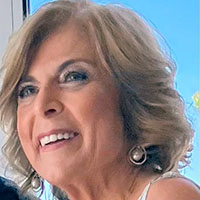The Municipal Clerk truly is a community’s jack-of-all-trades, often overseeing multiple departments and performing numerous tasks daily to keep local governments and public services running smoothly and efficiently. Conversations With Clerks is a continuing DeCoder series in which we talk with Municipal Clerks from across the country to learn more about their unique experiences and what it takes to be effective and successful in their roles.

This issue’s featured clerk
Ronnie Shatzkamer, MMC
Village Administrator
Village of Flower Hill, NY
To start off, could you give us a little background about Flower Hill, NY?
Flower Hill is a village in Nassau County, NY on the North Shore of Long Island. It was incorporated in 1932. We have about 5,000 residents and the village covers about 1.2 square miles. We are a very affluent community that is within a very easy commuting distance to Manhattan. So that makes it very desirable to a lot of people.
Flower Hill is very unusual in that we’re in three different ZIP codes, and we have three different school districts. We also have three different fire departments, and three different post offices. St. Francis Hospital is in our jurisdiction, which is part of the Catholic Health System. It originally was a sanitarium for children from New York City with heart problems and today it is a leading heart and cancer treatment center.
You are Flower Hill’s Village Administrator. How does that differ from what most people know as a municipal clerk?
[The job] is essentially the same except with an added layer. [In addition to the usual clerk duties], I do all of the HR work. I am also an attorney, so I do a lot of the [legal] work for the village such as preparing laws and resolutions and reviewing contracts. So, I do wear a lot of hats at times.
Was this job something that you aspired to? How did you evolve into what you do today?
Like every other village clerk, I pretty much stumbled into it. I started out in law. After I graduated from law school, I worked in personal injury, which I really didn’t like. And then when I had kids, I just stayed home for a few years. When my kids got a little older, just to get out of the house a few hours a week, I took a part time job at the Village of Manorhaven. At that time that mayor was not getting along with his clerk, and he asked me if I’d be interested [in taking the job full-time]. And the rest is history. I’ve been at Flower Hill for 16 years now and I’ve been doing this [kind of work] for 20 years.
What do you think you like most about your job in the 16 years you’ve been there?
I love the people and interacting with them, and every day is something different. My job is pretty much putting out fires and I like the challenges that come with that. There’s always a new emergency or something else that pops up that must be resolved immediately. So, the day-to-day [experience] is always varied. And I like that.
What do you think have been the most challenging aspects of your job?
One of the biggest challenges is dealing with government mandated programs and set requirements. [These mandates often] require us to do certain things when there’s no funding, so we have to be creative in coming up with solutions to make do with as little as possible. Our goal is to give the public the best value for their [tax] money. So, we are challenged to be very, very cost conscious all the time.
How do you think the position has changed over the years?
I remember when I first started working, every building permit was a written record. We barely had computers back then and it was very disorganized and a mess a lot of the time.
My goal before I retired was to bring my office into the 21st century and on the road to becoming completely paperless. I’m getting there and we’ve made a lot of progress. Now we have Laserfiche®, Municity™, eCode360® and a financial software program that makes everything easier. And that’s been my goal over the years. So, I think we are on a good path.
What are some of the accomplishments during your tenure that you’re most proud of?
When I started here, there were no written policies. There were no guidelines for how to do things in accordance with law. I’ve enacted almost 60 policies and written a 43-page employee handbook. Now there are clear guidelines for action. I’ve also gotten so many grants for this village. I was instrumental in developing our park with a playground, dog park, basketball court and pedestrian path. I initiated the village website, keeping it up to date weekly. I like to germinate the ideas and then put them before the board and let them make decisions. But I let them think it was their idea! I also pride myself on being up to date on all new laws and new requirements. And I love writing laws, throughout my career here, I have written almost 100 laws that have been enacted. I’m working on a new tree code right now so I’m having a lot of fun with that.
How important is it to your village to have its code up to date?
It’s absolutely essential. Before I came here, there were basically no new local laws enacted. They just relied on the old original code — I think from 1997— as it had been amended. And it didn’t reflect the way the village actually operated. Little by little we’ve gone through the code to make it more relevant and to ensure the laws reflect what we’re actually doing. We have a very active building department because this is such a desirable community and building is just nonstop. So, it’s especially important that our zoning code is up to date, because that’s what my building inspector relies on. eCode360 has especially been helpful in finding a lot of information and comparing codes from other communities. It’s a really great tool.
What advice would you give to new clerks?
The best thing [a new clerk can do] is to network, network, network. Right now, I’m the President of the Long Island Village Clerks and Treasurers Association, and we hold monthly meetings that always have an educational component. Networking is so key, and it’s interesting because I know some clerks who don’t participate in meetings, and they often get things wrong in their work. We also have a Listserv where if you have a question, you can post it online and you get tons and tons of information and advice. It’s an important tool. Another piece of advice is if you have a municipal attorney, consult him. That’s what your community is paying them for.
Do you attend local and national conferences, to keep up with what’s going on?
We have the International Institute of Municipal Clerks that has regional and worldwide conferences. I have attended regional ones. They issue Certified and Master Municipal Clerk certifications, both of which I have. New York State Clerk’s Association which sponsors classes leading to Registered Municipal Clerk certification and reaccredit every two years which I do. New York Conference of Mayors offers an annual Fall Training School which is a week of full time classes, I have received 10 year attendance recognition and am up to 13 years of attendance. I’m always looking for online classes that enhance my knowledge and improve my performance. I’m also a licensed attorney and keep up with my continuing education credits which always relate to local government topics. Education should be a life-long pursuit.
What is the best kept secret about Flower Hill?
We have a number of celebrity residents – but I won’t drop names! We also have this really creepy cemetery that dates back to the American Revolution. Nobody really knows about it, and it is so interesting because you can see these graves from the 1700s. The Boy Scouts have done some clean up but it’s still pretty spooky!
I know you are set to retire soon, so what is on your bucket list?
My husband and I were supposed to go to Yellowstone and Grand Teton just as the pandemic hit. We had it all booked and then it was cancelled. So that’s going to be our first retirement trip. We are also set to enjoy our grandkids and I have a lot of hobbies that I will have more time to pursue and old friends to catch up with.
Any final advice you’d like to offer clerks?
Don’t be afraid to ask. There’s no such thing as a stupid question. Ask your fellow clerks. Also – and a key piece of advice – reach out to the New York Conference of Mayors, they are phenomenal and can always either answer your questions or lead you to the right source. That’s what you paid your membership dues for, and they are always happy to help you out.


